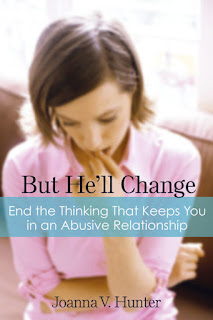Deciding to Leave
It is easy to say, this will never happen to me. I assure you there is a long line of victims who said just that. According to the Center for Disease Control and Preventions, one in four women (24.3%) and one in seven men (13.8%) aged 18 and older in the United States have been the victim of severe physical violence by an intimate partner in their lifetime.
The most dangerous time for victims is when they attempt to leave. Victims (male or female) should contact the shelter in their area where a professional will work with them to set up a safety plan (including having extra car keys hidden, a packed suitcase, copies of important documents and cash) [Footnote: http://www.domesticviolence.org/personalized-safety-plan/]. Often shelters have female support groups that meet on a regular basis. Victims do not need to stay at the shelter to attend. There are fewer options for male victims. Shelters often have connections that will provide support and a place for men to stay. If there is no shelter nearby, contact the National Domestic Violence Hotline at 800-799-7233 or go to www.ndvh.org.
Whether to leave or stay is a difficult, personal decision. A therapist who is trained to work with victims of domestic abuse can help a victim assess her options and will respect the victim’s decision. Should a victim choose to stay, the therapist can help her set up a safety plan. If she decides to leave, a therapist can help the victim untangle from the abusive relationship and leave safely. The therapist then guides the victim through the healing process, which may include treatment for Post Traumatic Stress.
Friends can help by respecting the victim’s decisions and not applying pressure for her or him to leave. Friends can speak honestly about what they witness and point out that the victim does not deserve to be treated in that manner. They can remind the victim what is right and good about her or him, and have the hotline number for the nearest shelter or the National Domestic Violence Hotline on hand. Friends can also be a part of the victim’s safety plan by having a signal that allows the victim to notify the friend should they need the police. Anyone who witnesses violence should immediately call the police.
Recovering after abuse is a journey where victims take back their power and become survivors. Through the healing process, victims thrive. They learn to trust their instincts, recognize their strengths and abilities and move toward a different, healthy future. It is hard work, but it is worth it. I know—I did it.
I learned that I could take care of myself and provide a safe, peaceful home for my children. We struggled, but every hurdle cleared was a victory that nurtured my self-esteem. I became stronger and wiser and no longer needed a partner in my life. Ironically, then I met a truly wonderful man. We have been married for 25 years.
Over time I shed the “survivor” label. Now I view myself as a women who spent a portion of her life in an unhealthy relationship. Each year that portion grows smaller.
---
Joanna
Hunter knows what it’s like to live in the secret, terrifying world of
abuse. She did it for almost 20 years. She also knows that victims can
transcend domestic abuse and go on to live a joy filled life. She's done
that.
In her book,
But He’ll Change; End the Thinking that Keep You in an Abusive Relationship, Hunter discusses the components of abuse and identifies
over 100 unhealthy thoughts that victims embrace to cope with the abuse.
She teaches the reader how to counter those false-beliefs. Her book
received a 2011 Nautilus Book Award.
Since
2001, she has educated and shared her story with thousands of adults
and teenagers through classrooms and community organizations.
She is a popular guest speaker at universities, where she trains
students in medical programs how to screen patients for abuse and how to
help victims. She volunteers at the women’s shelter in her area.
Connect with Joanna:
Facebook: A place where those touched by DV can join a caring community of survivors
Blog: Focuses on healing after abuse


No comments:
Post a Comment